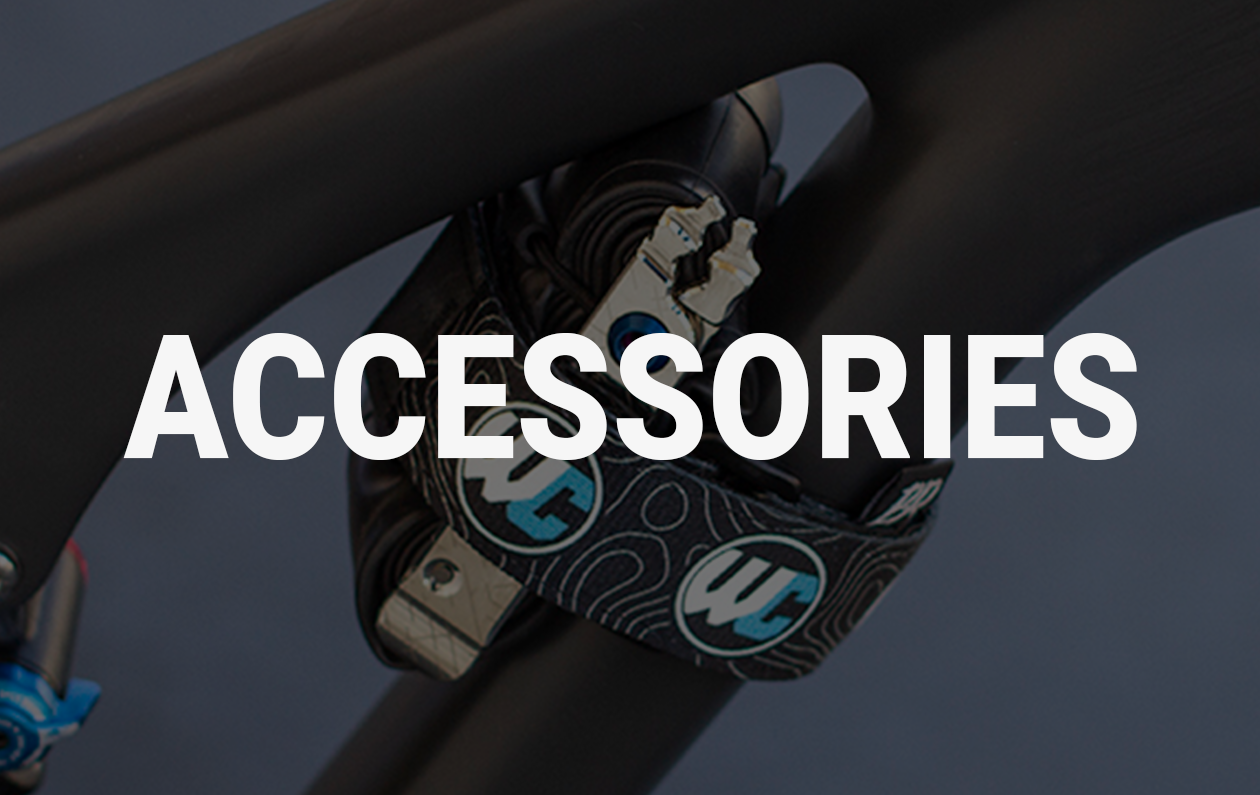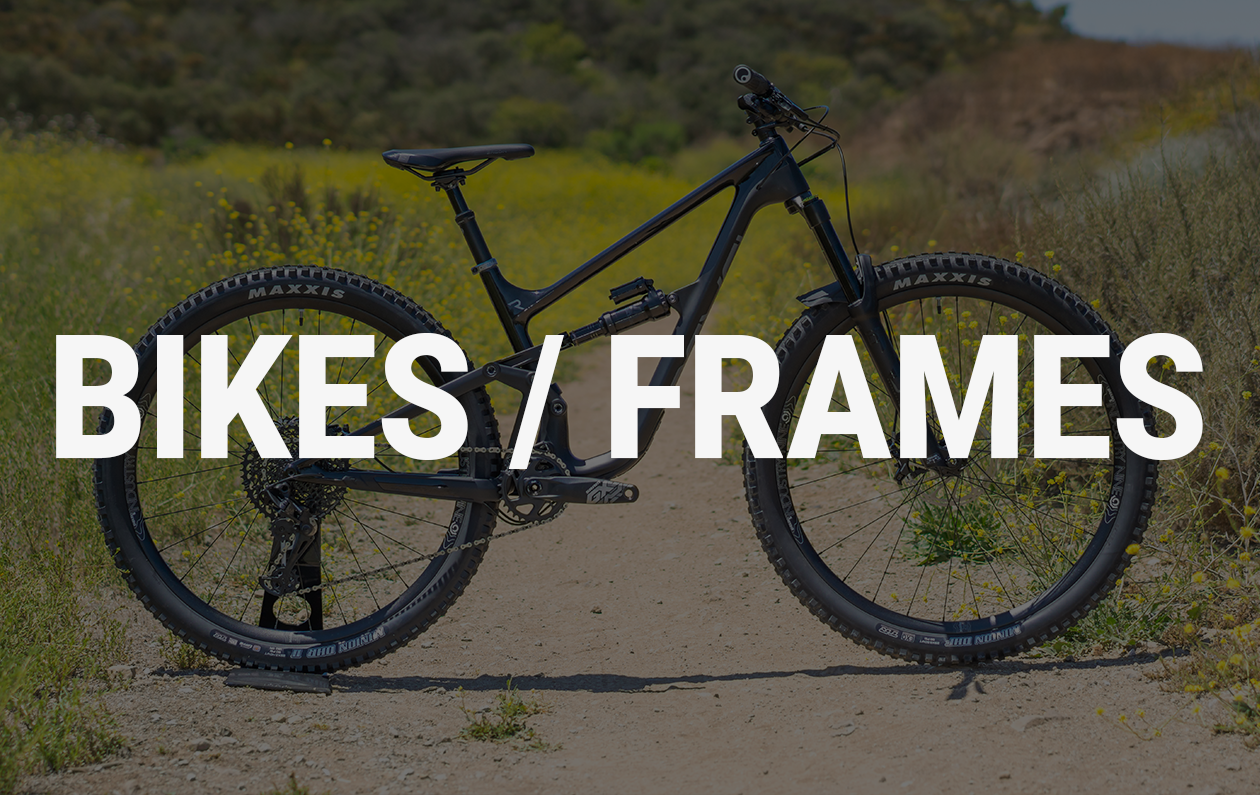- Shop
- Bikes / Frames
-
Components
- Tires / Tubes / Sealant / Valves
- Forks / Parts
- Rear Shocks / Parts
- Groupsets / Drivetrain Bundles
- Drivetrain
- Shifters
- Handlebars / Grips
- Stems
- Brakes / Pads / Adaptors
- Seatposts / Clamps / Levers
- Saddles / Seats
- Pedals / Cleats / Parts
- Wheels / Hubs / Rims
- Headsets / Parts
- Cables / Housing
-
Accessories
- Tools / Lube / Solvents
- Car / Truck Racks / Tailgate Pads
- Frame Straps
- Pumps / Inflation
- Chainstay / Frame Protectors / Fenders
- Computers / GPS / Electronics
- Hydration Packs / Bags
- Lights
- Water Bottles / Cages
- Gift Ideas / Novelties
- Indoor Trainers
- Bike Travel / Shipping Cases
- Nutritionals
- Locks
- Storage Racks / Stands
-
Apparel
- Helmets
- Jerseys
- Shorts / Bibs
- Gloves
- Shoes / Socks
- Pads / Protective Gear
- Pants
- Eyewear
- Chamois / Short Liners / Base Layer
- Chamois Creams / Embrocations / Butt'r
- Jackets / Vests / Hoodies / Flannels
- Casual Wear
- Headwear
- Brands
- Top Secret Sales (Do Not Tell!)
- Watch
- Read
- My Account
- Help / FAQ's
- Contact Us / Locations
- Call Us | 1-805-375-4525
- Why Shop With Us?
- About Us
- Continue Shopping
- Your Cart is Empty
Chromag Synth Composite Pedals: Rider Review
Our "Rider Review" article series features the honest reviews from verified purchasers of Worldwide Cyclery. They contain the photos, thoughts, feedback & overall review you are looking for.
Pedals, like many components on mountain bikes, are a very personal choice. Everything from the shoes you wear to the pedal materials needs to be taken into account. These days it is just as likely to find a great set of composite pedals as expensive aluminum. In this review, our customer Zachary picks up a set of Chromag Synth composite pedals for his wife's new Orbea. Check it out!
Overview
While the high-end pedal market is still dominated by aluminum pedals, advances in developing more resilient plastics for parts which see more abuse on a bike seem to have resulted in a wide range of more affordable, very durable parts for those who don't need the bling of nicely machined aluminum parts.
My wife had just bought a new Orbea and it did not come with pedals. We had already stretched our budget on the bike itself and buying a $120 pair of premium aluminum flat pedals seemed a bit painful. I had owned composite pedals in the past and while the bodies were quite resilient, I found that pins ripped out too easily and the internals were certainly a step down from the much nicer quality bearings on high-end aluminum pedals.
Initial Thoughts
Then I came across the Chromag Synth pedals. I have had great luck with Chromags pedals in the past, specifically the Contact. The Synth mirrors the same shape as the Contact but with a plastic body. The Synth pedals stand out in a couple of key ways beyond what other brands seem to offer, the first being the burly pins. While they're more of a budget affair than Chromag's typical custom pins, they are much more substantial than some other brands offer, and are quite sharp and grippy despite being on a "budget" pedal. The second and more important feature, however, is the use of Chromag's well-designed and well-sealed internals from their higher-end pedals. Rather than compromising with cheaper bearings, the internals are identical to the Chromag Contact which has proven over several years to be some of the best sealed and longest-lasting pedals I have ever had.
First Ride
I was impressed when I installed them and tested them out, but I wasn’t sure how the plastic pedal bodies would hold up for my wife, who is newer to mountain biking and hasn’t quite mastered the art of pedal position in rocky/rough sections. On her first ride out the pedals were already taking a beating, slammed into a couple of different rocks and logs along the trail. There were a few instances where she clipped rocks that may have stalled an aluminum pedal, but the nylon composite body showed some of its advantages over aluminum by being much more eager to simply slide over rocks and sharp-edged obstacles versus sticking and stopping the rider.
Performance and Final Thoughts
After months of riding, the pedals still spin perfectly, have lost no pins, and aside from some battle scars, function as good as new. They are lighter than aluminum pedals to boot! While I still am a sucker for the nice machining and anodizing on higher-end pedals, the Synth has started to change my mind about nylon pedals, showing that a rider who is looking for a workhorse pedal that will last just as long as a high-end pedal while providing all of the performance benefits does not have to spend $100+ to find a perfect pedal. I would highly recommend these to anyone, and maybe getting a set myself once my Chromag Contacts kick the bucket!
November 10, 2019
Chromag › Composite Pedal › custom › Pedals › Rider Review ›
Top Products For You...
Recent Blogs
--- Shop Info ---
Newsletter Signup -
© 2026 Worldwide Cyclery














